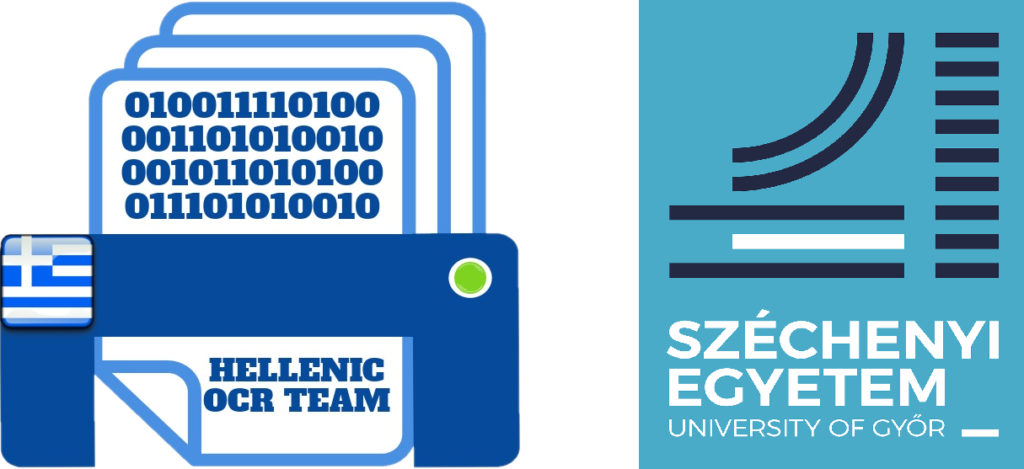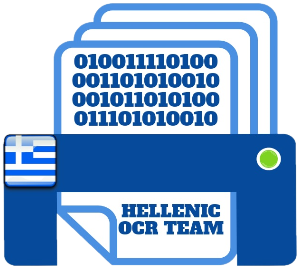
The organizing committee of the 4th Global Conference on Parliamentary Studies has announced the program for the event, which will take place in Athens, Greece, on Friday, 13 June 2025.
8:00 – 8:30 Registration, front desk
8:30 – 9:15 Session #1 (plenary), Room: “Ilias Crispis”
Moderator: Olga Gianniadi, CEO Innovative Tech for the Next Generation
Opening remarks:
- Fotis Fitsilis (Hellenic Parliament), conference co-chair
- Zsolt Szabó (Széchenyi István University, Károli Gáspár University of the Reformed Church in Hungary), conference co-chair
- Nikos Thomaidis (Vice President of the Administration Council, University of Athens)
- Dimosthenis Asimakopoulos (Advisor to the Speaker of the Hellenic Parliament, former Rector of the University of Athens)
Keynotes:
- Mario Hernández Ramos (Complutense University of Madrid, Chair of the Council of Europe’s Committee on Artificial Intelligence) – “Aspects of the Council of Europe’sFramework Convention on Artificial Intelligence and human rights, democracy and the rule of law on parliamentary institutions”
- Josefa Fuentes García (Senate of Spain / IFLAPARL member) & Lila Theodosi (Hellenic Parliament / IFLAPARL Information Coordinator) – “IFLAPARL: Networking for stronger and better-informed democracies”
9:15 – 9:30 Group photograph / Dissemination of participants to the four rooms
9:30 – 11:30 Session #2, Room: “Ilias Crispis”
Chair: Fotis Fitsilis (Hellenic Parliament)
- Sotiris Leventis (Qognity) – “Drafting Legal Texts with Embedded Intelligence”
- Spyridon Vlachopoulos (University of Athens) – “Parliamentary Code of Conduct for the use of artificial intelligence applications”
- Giovanni Rizzoni (Italian Chamber of Deputies / LUISS Guido Carli) – “AI-mediated deliberation and Parliaments: competition, integration or substitution?”
- Jörn von Lucke (Zeppelin University) – “Approaching the Integration of Large Language Models in the Parliamentary Workspace: Enhancing Parliamentary Processes with Large Language Models”
- Marci Harris (POPVOX Foundation) – “AI and the Legislative Supply Chain”
9:30 – 11:30 Session #3, Room: Museum 1st floor
Chair: George Mikros (Hamad Bin Khalifa University)
- Stéphane Gagnon (University of Quebec) – “Enabling Parliaments to Fight Disinformation and Corruption: Toward AI-Enabled ‘Chief Reality Officers’ (CRO) as Extensions to the Digital Trust Ecosystem Framework”
- Ylenia Citino & Nicola Lupo (LUISS Guido Carli) – “Election Validation and Annulments in the era of online disinformation, between Parliaments and (Constitutional) Courts”
- Lilian Olivia Orero (University of Bristol) – “Leveraging Emerging Technologies to Combat Disinformation and Safeguard Democratic Integrity in the 21st Century”
- Roland Kelemen, Dorina Bosits & Zsófia Réti (Széchenyi István University) – “Hate Speech in the Digital Age: User Perception, Platform Governance, and Legal Challenges”
- Gergely G. Karácsony Legislative and technical responses to the proliferation of AI generated fake images in public discourse
9:30 – 11:30 Session #4, Room: Annex ground floor
Chair: Peter Smuk (Széchenyi István University)
- Antonios Kouroutakis (IE University) – “Recall Elections in Parliamentary Systems in the Digital Era”
- Meray Maddah (University of Konstanz) – “Window-Dressing or Real Reform? Compliance with International Democratic Reform Agendas”
- Attila Horváth (Ludovika University of Public Service) – “Five Years in a State of Danger: Insights from Emergency Legislation in Hungary”
- Jordi Xuclà (Ramon Lull University) – “Open Parliament Plan in Spain: evaluation of proposals and challenges in a changing world”
- Tomasz Litwin (Ignatianum University in Cracow) – “How the United Right Justified Unconstitutional Changes to the Judiciary in Parliamentary Debates – An Analysis of Sejm Stenographic Reports”
9:30 – 11:30 Session #5, Room: Annex 1st floor
Chair: Juan de Dios Cincunegui (Universidad Austral)
- Aleksandra Maatsch (University of Wroclaw) – “Digitalisation of Parliaments in the Post-Pandemic Period: Stumbling Blocks and Stepping Stones”
- Jindřiška Syllová (Parliament of the Czech Republic & Charles University) – “Parliamentary Democracy and the Digital Gap”
- Csaba Erdős (Széchenyi István University) – “The Role of e-parliament Tools in Augmenting Better Legislation”
- Dimitris Koryzis (Hellenic Parliament) – “Digital Parliamentary Strategies in an emerging environment”
- Vasiliki Artemis Mitselou (University of Athens) – “Digital Ready Policy Making in Greece”
11:30 – 12:00 Coffee break
12:00 – 14:00 Session #6, Room: “Ilias Crispis”
Chair: Iasonas Lamprianou (University of Cyprus)
- Juan de Dios Cincunegui (Universidad Austral) – “Authoritarianism and Democracy. The role of parliaments in mitigating one of the greatest global risks of the 21st century”
- Tsveta Petrova (Columbia University) – “Democracy and Its Competitors in Contemporary Europe: What Democracy Do European Citizens Prefer?”
- Ioanna Christodoulaki (University of Wroclaw) – “Debates on Democracy and the Rule of Law in National Parliaments in the EU: Technical and Methodological Challenges”
- Katerina Lambrinou (Hellenic Parliament) – “Placing Parliaments at the forefront of the Future Generations agenda – how innovative and citizen-centric anticipatory governance can future-proof parliamentary practice”
- Elise Uberoi (House of Commons Library) – “Misinformation, trust and truth: the role of parliamentary research services”
12:00 – 14:00 Session #7, Room: Museum 1st floor
Chair: Zsolt Szabó (Széchenyi István University, Károli Gáspár University of the Reformed Church)
- Peter Smuk (Széchenyi István University) – “Foreign agent legislation and protecting the electoral process – the Central European experience”
- Meriem Naïli (Université Grenoble-Alpes) & Stelios Stavridis (ARAID/Universidad de Zaragoza) – “The European Parliament as an international moral actor in the Mediterranean: comparing and contrasting the EP ́s reactions to the war in Gaza and to the Western Sahara conflict”.
- Vassilis Kessidis (Panteion University) & Emilio Mourad-Saber (Tulane University) – “European politics threatened by Russian influence and the risks to democracy”
- Alberto Atelli & Michail Kokkaliaris (LUISS Guido Carli) – “Democratic resilience through parliamentary cooperation: the European society perspective”
- Umberto Lattanzi (Bocconi University) – “Parliaments and the international export of weapons: a comparative study on the relevance of international legal considerations in parliamentary deliberations”
12:00 – 14:00 Session #8, Room: Annex ground floor
Chair: Dimitris Koryzis (Hellenic Parliament)
- George Mikros (Hamad Bin Khalifa University) – “Stylometric Fingerprints in the Greek Parliament: Cross-Party Discourse Analysis Through Computational Stylometry”
- Angeliki Skoura (Hellenic OCR Team) – “Analyzing documents of the legislation procedure of the Artificial Intelligence Act in terms of ethical principles”
- Rudolf Berkes (HUN-REN Centre for Social Science) – “Risks and limitations of integrating automated speech recognition into parliamentary operations”
-
Giuseppe Mobilio (University of Florence) – “LLMs in Parliaments: Fostering Technological Innovation, Cooperation and Democratic Principles”
12:00 – 14:00 Session #9, Room: Annex 1st floor
Chair: Franklin de Vrieze (Westminster Foundation for Democracy)
- Danny Schindler (Institute for Parliamentary Research) – “What drives the selection of young candidates? Evidence from Germany’s mixed-member proportional systems”
- Federico Musso (Università degli Studi di Roma “Tor Vergata”) – “From emergency to permanence? A comparative analysis between Italy, the UK and Spain on the evolution of remote parliamentary procedures”
- Stefano Bargiacchi (Università di Firenze) – “Parliaments and disability: strengthening democratic institutions through inclusive policies and technological innovation”
14:00 – 14:45 Light lunch
14:45 – 16:45 Session #10, Room: “Ilias Crispis”
Chair: Jörn von Lucke (Zeppelin University)
- Mattia Angeleri (LUISS Guido Carli) & Sofia Ranchordas (Tilburg Law School / Luiss Guido Carli) – “AI for the legislative process: authentic participation or participation washing?”
- Aglaia-Maria (Mirela) Pachou (University of Athens) & Maria Biliri (Lawyer) – “Reframing creativity: Legal challenges of generative Artificial Intelligence in the cultural landscape”
- Pier Francesco Bresciani (University of Bologna) – “Rethinking Parliamentary Autonomy in the Age of AI: A Study of Digital Constitutional Theory”
- Martin Montes (Universidad Austral) – “Bringing AI to parliament in Argentina: the role of Universidad Austral in supporting legislative innovation”
- Charalampos Alexopoulos (University of the Aegean) – “NLP and RuleAsACode in Action: Automated Rule Extraction in legal drafting procedures”
14:45 – 16:45 Session #11, Room: Museum 1st floor
Chair: Stéphane Gagnon (Université du Québec en Outaouais)
- Caoímhe O’Rourke (Irish Parliament) – “Broadcasting Parliament from an Offshore Island – An Innovation in Parliamentary Communications”
- Geraldine Castel (Grenoble Alpes University) – “Online Petitioning in the Scottish and British Parliaments: a New Look at its Democratic Potential”
- Áron Ősze (Széchenyi István University) – “The role of the media in the dissemination of scientific results and possible legislative responses”
- Michał Jabłoński (University of Warsaw) – “Parliamentary privilege and social media activity of members of parliament: a comparative study on parliamentary freedom of speech in time of disinformation”
14:45 – 16:45 Session #12, Room: Annex ground floor
Chair: Tsveta Petrova (Columbia University)
- Ariadne – Maria Angelopoulou (Hellenic OCR Team) & Haralambis Kyrkos (Hellenic Parliament) – “Parliamentary Oversight in Greece in the early Post Dictatorship Period”
- Giuliano Vosa (University of Catania) – “Parliamentary control on European military issues: a matter of constitutional law”
- Peter Vaczi (Széchenyi István University) – “The legislative anomalies of the Electronic Real Estate Registry in Hungary”
- Zuzanna Żurawska (University of Miskolc / Central European Academy) – “Legal status of the President of the Chamber of Deputies of Romania”
- Weronika Pietras (University of Miskolc / Central European Academy) – “Legal Status of Deputy President in Estonia, Latvia and Lithuania”
14:45 – 16:45 Session #13, Room: Annex 1st floor
Chair: Giovanni Rizzoni (Italian Chamber of Deputies / LUISS Guido Carli)
- Gianmario Demuro (University of Cagliari) – “The crisis of political constitutionalism and a new parliamentary constitutionalism”
- Piero Gambale (Italian Chamber of Deputies / Luiss Guido Carli) – “The constitutional reform of article 9 and the future generations in Italy: towards a generational impact assessment of laws in Parliament?”
- Sofia Caporiccio (University of Pavia) – “Constitutional challenges of AI in the Italian law-making process”
- Giulia Sulpizi (Ca’ Foscari University – Université Sorbonne Paris Nord) – “Parliamentary immunities dealing with new tools of political communication”
- Angelo Schillizzi (University of Ferrara) – “Which Legal Norms Govern the Procurement and Development of AI Systems for Legislative Activity? Short Notes on a Contemporary Problem Starting from the Principle of Parliamentary Autonomy”
16:45 – 17:15 Coffee break
17:15 – 18:45 Session #14, Room: “Ilias Crispis”
Chair: Fotis Fitsilis (Hellenic Parliament)
- Antonios Kasotakis (European Parliament) – “Effective Project Management in the European Parliament: The ENGAGE Methodology”
- Maria Kamilaki (Hellenic Parliament) – “Engaging with Parliamentarism through the Hellenic Parliament Library Repository”
- Franklin De Vrieze (Westminster Foundation for Democracy) – “Parliamentary innovation through Post-Legislative Scrutiny and Technology”
- Addie Erwin (Inter-Parliamentary Union) – “Parline Today: Enhancing Access, Transparency, and Insights into Global Parliamentary Data”
17:15 – 18:45 Session Session #15, Room: Museum 1st floor
Chair: Haralambis Kyrkos (Hellenic Parliament)
- Aleksandra Jovanovic (National Assembly of the Republic of Serbia) – “Artificial Intelligence in the National Assembly of the Republic of Serbia and Assembly of Montenegro: opportunities and challenges in legislative processes, parliamentary diplomacy and EU accession”
- Boldizsár Szentgáli-Tóth & Klára Szalay (HUN-REN Centre for Social Sciences) – “Generative AI in parliaments: at the beginning of a new era”
- Kevin Wayne Settles (Institute for Parliamentary Research) – “From Pixels to Parliament: How AI is Reshaping Legislative Governance”
- Ioannis Gianniadis (Hellenic OCR Team) – “Potential Operational Risks – Preliminary Analysis of the Standing Orders of the Hellenic Parliament”
17:15 – 18:45 Session Session #16, Room: Annex ground floor
Chair: Nicola Lupo (LUISS Guido Carli)
- Mónica Velasco-Pufleau (European Institute of International Studies / University of Luxembourg) & Laura Gil-Besada (University of Luxembourg / Complutense University of Madrid)– “Who is who in Privacy and Personal Data Protection: A Case-based Analysis of the Parliamentary Diplomacy of National Delegations to the Parliamentary Assembly of the Council of Europe”
- Ludovica Tripodi (Università di Parma) & Paolo Pensabene (Sapienza, University of Rome) – “Old questions and possible perspectives for the establishment of a Common European Defence System in the light of the Italian constitutional framework”
- Jordi Xuclà (Ramon Lull University) – “The Spanish presidency of the Parliamentary Assembly of the Union for the Mediterranean (2024-2025): analysis of contents and achievements”
18:45 – 19:00 Session 17 (plenary), Room: “Ilias Crispis”
Moderator: Olga Gianniadi, CEO Innovative Tech for the Next Generation
Closing remarks:
- Fotis Fitsilis (Hellenic Parliament), conference co-chair
- Zsolt Szabó (Széchenyi István University, Károli Gáspár University of the Reformed Church in Hungary), conference co-chair
Revealing of the next iteration of the Global Conference on Parliamentary Studies
********************
